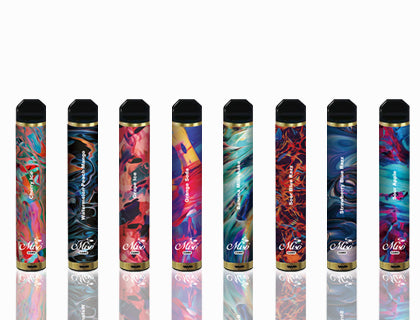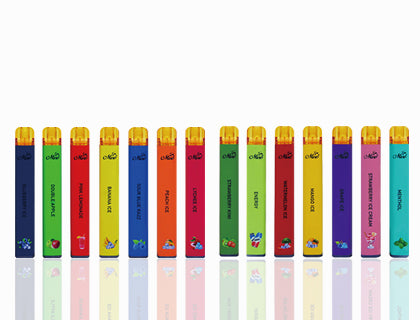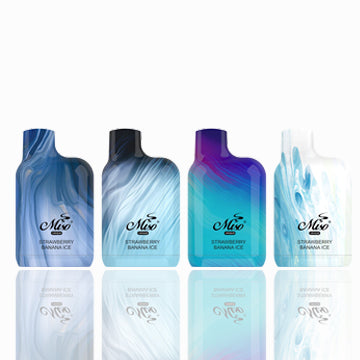The national standard of electronic cigarette has been put into practice: businesses "lay flat" in a short period of time and enterprises make efforts overseas
The national standard of electronic cigarette has been put into practice: businesses "lay flat" in a short period of time and enterprises make efforts overseas

On October 1, the electronic cigarette management measures and the mandatory national standards for electronic cigarettes came into full force and effect. The whole industry chain was licensed and licensed, and the industry ushered in a new era of compliance. Customers can buy national standard products in licensed electronic cigarette stores, including cigarette sticks with child locks, cigarette bombs with tobacco flavor that meet the national standard, disposable electronic cigarettes, and tobacco suits. Fruit flavored electronic cigarettes have been withdrawn from the Chinese market since then.
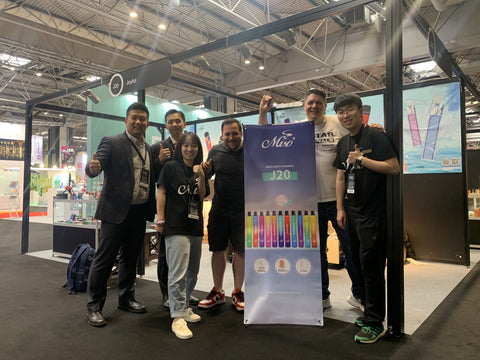
According to the reporter, up to now, nearly 400 e-cigarette supply chain, brands and overseas export enterprises have obtained e-cigarette production licenses, including nearly 40 e-cigarette brands. At least 51 cigarette sticks and at least 100 cigarette bombs of these 40 brands have been approved, and can be booked and sold through the national unified e-cigarette trading management platform. In addition, 54706 electronic cigarette retail licenses will be planned nationwide.
Merchant: short-term "lie flat", long-term "taste is the key"
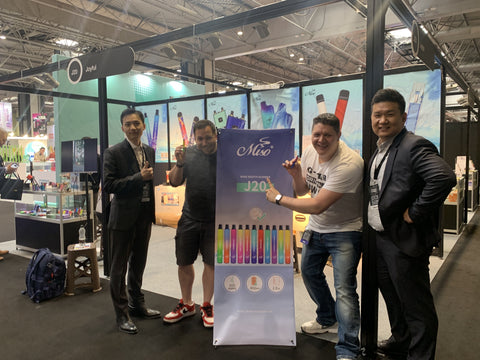
Thanks to the policy buffer period of half a year, the upstream electronic cigarette manufacturers have successively stopped producing fruit flavored electronic cigarettes in recent months, and the stock of fruit flavored cigarette bombs has gradually been sold out.
A person in charge of an enterprise that has obtained an electronic cigarette production license said that, from the perspective of the electronic smokers around him, the proportion of people who accept the national standard tobacco flavor is less than 30%. Recently, everyone has hoarded some fruit flavored electronic cigarettes, and may quit smoking in the future, or may return to the cigarette camp.
According to the feedback from the electronic cigarette retailers interviewed by the reporter, for the national standard tobacco flavored electronic cigarettes, it is better to sell about 10 boxes a day, but it is almost impossible to sell one box in two weeks. Many e-cigarette retailers generally reported that the repurchase rate of national standard tobacco flavored e-cigarettes was completely different from that of fruit flavored e-cigarettes.
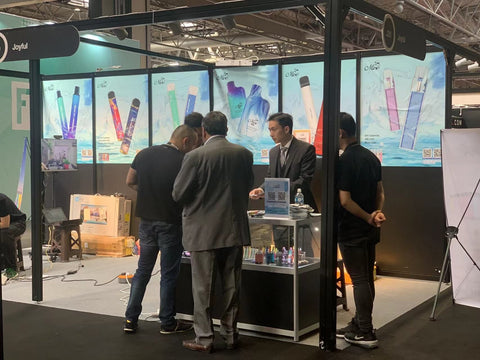
In this regard, Chen Zhong, a senior person in the electronic cigarette industry and chief editor of Blue Hole New Consumer, believes that the poor repurchase rate of the first batch of national standard products is expected, because the audit of the first batch of national standard products is very strict. In order to pass the audit smoothly, enterprises will be very cautious in adding tastes. If the audit is slightly relaxed later, the taste should be much better.
Many shopkeepers said they did not expect short-term sales. First of all, the repurchase of tobacco flavored electronic cigarettes is poor. After the fruit flavored electronic cigarettes are completely off the shelves, the business volume will drop by at least 50%, 70% or even 90%. Secondly, in the next 3-6 months, because many users have hoarded a lot of fruit flavored electronic cigarettes, these users will give priority to consuming the fruit flavored electronic cigarettes they have hoarded and will not be interested in the national standard tobacco flavor for the time being.
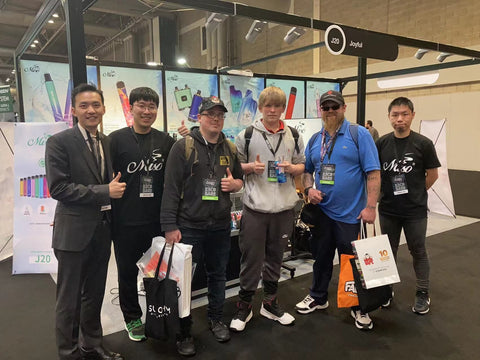
Everyone's expectation for the future market is that the brand can only launch the taste that meets the national standard and is acceptable to electronic smokers, so as to usher in the turning point of sales. "There will be impact in the short term, but in the long term, we have eliminated WeChat stores and online sales, which is good news for licensed physical stores. There used to be about 50000 stores and 200000 retail outlets, but now there are only more than 50000 licenses. As long as the products can rise, we are still confident," said one shopkeeper.
Xiao Xu, a smoker with a history of electronic cigarettes for many years, told the reporter that after compliance, in addition to fewer taste choices, the quality was well guaranteed. Since the purchasing channels of all commodities will come from the national unified electronic cigarette trading management platform in the future, the acts of counterfeiting, counterfeiting, and disorderly pricing will be controlled from the source, and the whole chain will be operated with certificates, "you will never worry about whether you smoke fake or inferior products."

Manufacturer: Fali Overseas Market
"I now focus on the export market, with overseas sales accounting for more than 90% and domestic sales accounting for a single digit. Since the second half of September, I have not received orders from domestic brands." Mr. Lin, the head of a leading cigarette oil enterprise in the Pearl River Delta, told reporters that its domestic sales accounted for about 40% before. With the implementation of a series of domestic regulatory rules, he realized that the domestic market may face shocks in the short term, Therefore, we quickly turned around and increased sales in overseas markets. Thanks to the growth of overseas markets, it is expected that sales this year will not decrease compared with last year.
According to the latest financial report of Simore, the leader of electronic cigarette OEM, nearly 70% of the company's income in the first half of 2022 comes from overseas markets. In 2021, Simore's revenue from Chinese Mainland will account for 40.2%. With the implementation of domestic regulatory policies in the industry this year, Simore's performance growth will mainly come from overseas markets.
In the US market, Simore, with its leading advantages in technology and manufacturing, has become an atomization technology manufacturer of ENDS (atomized/steam type electronic cigarette) category, which helps most customers pass PMTA (pre marketing review of tobacco). In Europe and other overseas markets, the company's revenue grew rapidly in the first half of the year, with a year-on-year growth of more than 42%. The relevant person in charge of Simore said that the one-time products of the new business were successfully shipped in the European market. In the second half of the year, they will continue to cooperate with customers in the European Union and overseas emerging markets, which is expected to bring considerable overseas revenue growth in the second half of the year.
However, the development of overseas markets is not smooth.
"The overseas market is very busy now, especially in Southeast Asia. Our company simply abandoned the Southeast Asian market, and the main competitors are the past domestic peers. After strict domestic supervision, everyone rushed out, leading to fierce overseas competition." Mr. Lin said.
Going to sea is not only the active choice of some enterprises, but also the choice that some enterprises cannot make. According to the notice on strengthening the supervision of electronic cigarettes issued by the State Tobacco Monopoly Administration on September 28, from October 1, the market entities of electronic cigarettes engaged in the production and operation of electronic cigarettes should obtain the tobacco monopoly license. As of the latest, only 40 electronic cigarette brand products have passed the compulsory national standard technical review of electronic cigarettes or obtained the electronic cigarette production license, which means that the vast majority of enterprises have not yet obtained the license, At this stage, if you want to maintain production and operation, you can only go to sea.
Chen Zhong said that at present, more than 50 countries and regions in the world have included e-cigarettes in the scope of tobacco products control, more than 40 countries and regions are strictly prohibited from selling e-cigarettes, and there are still some places waiting to see, such as South America, Africa, the Middle East, etc. These places have potential. Of course, there are also many challenges to go overseas. It is necessary to get familiar with the local environment, regulations and users, and the global policy and supervision on electronic cigarettes are gradually tightening. "This business may not be so lucrative in the future, and it will return to a rational and ordinary level. Enterprises going to sea should also be prepared for this."
Head brands are expected to expand their advantages
On the evening of September 19, Xiaosong Shares announced that Guangdong Jinlaite Intelligent Technology Co., Ltd., a wholly-owned subsidiary of the company, had received the Tobacco Monopoly Production Enterprise License issued by the State Tobacco Monopoly Administration, and could produce and sell electronic cigarette related products according to law. On the eve of the official implementation of the national standard for electronic cigarettes on October 1, the company officially obtained the "ticket" to carry out the electronic cigarette business in China.
Xiaosong Shares said in the announcement that, as an important platform of the company's new tobacco industry chain, KingLight Intelligent will, within the scope of the license, rely on the accumulated resources, technology, team advantages and other comprehensive advantages to provide customers with production and processing services for electronic cigarette sets, cigarette bombs and other products, which is expected to have a positive impact on the company's future business performance.
On September 20, Aipu announced that the company planned to increase its capital in Shenzhen Yingcan Biotechnology (hereinafter referred to as "Shenzhen Yingcan"), and Leiyan Technology, the controlling shareholder of Shenzhen Yingcan, owned the "Magic Flute MOTI" electronic atomization brand. Aipu Shares said that the company plans to obtain the controlling right of Shenzhen Yingcan by paying cash capital increase. In the future, it will use new tobacco core materials as a breakthrough, strengthen the synergy of product planning and market layout, increase research and development efforts, and seize new opportunities for industry development. According to the data, Magic Flute is listed in the "List of New Enterprises with Completed Tobacco Monopoly Production Enterprise Licenses".
In addition, among A-share listed companies, there are also BYD, Jinjia, Shunhao, Dongfeng, Jinlong Electromechanical, Jincheng Pharmaceutical, etc., which have been "licensed" by their subsidiaries, involving the production, sales, import and export of electronic cigarettes.
It should be noted that these companies have not recently entered the electronic cigarette industry, but have already laid out their plans. Most of them mainly participate in a certain link of the supply chain. They seize the short time window of the transition period to apply for production and operation licenses, which means that they have priority in obtaining entry qualifications and can provide products and services in compliance. As most of the company's main business is not new tobacco, it will not have a great impact on the company's performance and the industry.
"The real influence on the pattern is still the listed companies specializing in electronic cigarettes, such as Simore in Hong Kong and Foxwick Technology in the US," Chen said.
Chen Zhong believed that after the new compliance, the entry threshold for electronic cigarette enterprises has been greatly improved. So far, fewer than 400 enterprises have obtained production licenses, while there were tens of thousands of electronic cigarette enterprises in Shenzhen before, which means that a large number of small factories without qualifications, not meeting the requirements of national standards and regulatory requirements will exit the electronic cigarette market. From the perspective of domestic capacity, the capacity provided by these licensed enterprises can meet the current demand at this stage. If there is more capacity, a new internal volume will be generated.
Among the nearly 400 subjects that have obtained production licenses, 40 are electronic cigarette brands. Chen Zhong believes that the competition among brand dealers will be more intense, because the existing sales method is through the national unified electronic cigarette trading management platform, which has nothing to do with all brands in terms of channels. Therefore, the key to the competition is whether future products and designs can impress users and build brand loyalty in users' hearts. "In particular, what about many small brands that haven't had brand awareness before? I think it's a test for them. My personal judgment on the brand may only be half of it next year, and a little more pessimistic, or even ten will be good."
Galaxy Securities, China Merchants Securities, Caitong Securities and other institutions have said in the research paper that, with the improvement of production and sales threshold, the industry will focus on the head, and the statement end is expected to be significantly improved after the painful period of the industry, and the domestic electronic cigarette market will also enter a stage of steady expansion.
Sample Block Quote
Praesent vestibulum congue tellus at fringilla. Curabitur vitae semper sem, eu convallis est. Cras felis nunc commodo loremous convallis vitae interdum non nisl. Maecenas ac est sit amet augue pharetra convallis nec danos.
Sample Paragraph Text
Praesent vestibulum congue tellus at fringilla. Curabitur vitae semper sem, eu convallis est. Cras felis nunc commodo eu convallis vitae interdum non nisl. Maecenas ac est sit amet augue pharetra convallis nec danos dui.
Cras suscipit quam et turpis eleifend vitae malesuada magna congue. Damus id ullamcorper neque. Sed vitae mi a mi pretium aliquet ac sed elitos. Pellentesque nulla eros accumsan quis justo at tincidunt lobortis denimes loremous. Suspendisse vestibulum lectus in lectus volutpat, ut dapibus purus pulvinar. Vestibulum sit amet auctor ipsum.








